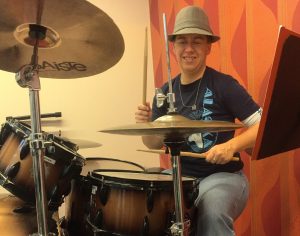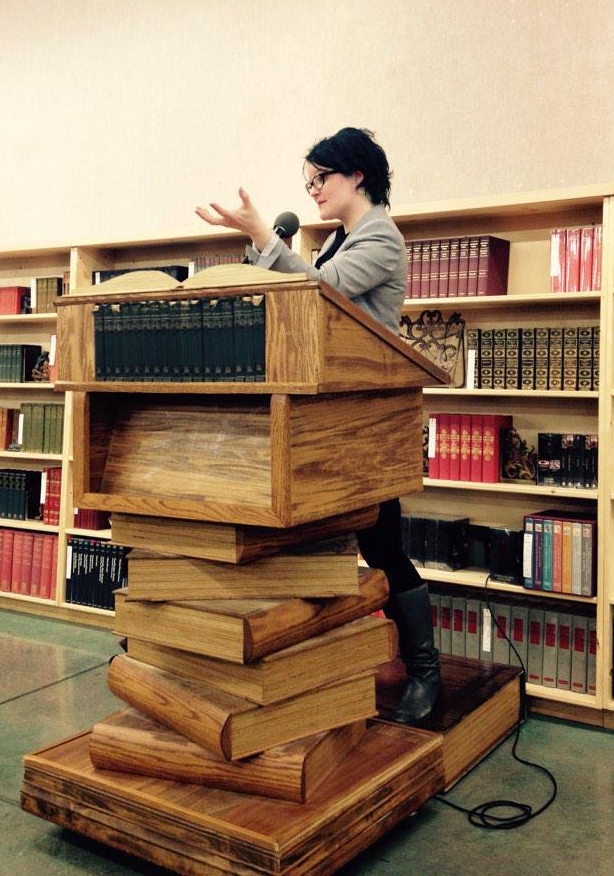Two writers tell us what they got out of participating in Straw Dog’s first Writers Roundtable -held February 11th.
The topic was “What sustains you as a writer?” – The next Roundtable will be June 10th.
 Sustain – once removed, by Jess Martin
Sustain – once removed, by Jess Martin
How does one dart, weave and unwind words into some semblance of beginning, middle and end? Then revise until proclaiming: “done” or “I surrender” or perhaps “I must get on with my life”… only to return to the blank page to do dance again.
Sustain solution (7% success content, percentage variable to dilution / desperation): Writer seeks same. Isn’t that part of what brought writers to a Straw Dog-led roundtable discussion on a Saturday morning: the company and commiseration of/with other writers? Sustain through group support. Levels vary from groups that meet to write, to groups that meet to critique, to groups that evolve into something under “x” (unknown) indescribably more, a network of support, reader, confidantes, muses? Some groups also might like piña coladas and getting caught in the rain.
Sustain solution (38% with delicate drips of self-acceptance): Joy. Pardon me, while I summon my Texas roots: You ain’t gonna do somethin’ you don’t like to do. Not having fun? Flip the switch. Before you jump two feet into blank space like someone’s hurtling flaming rocks at your face, do this: smile. Put on your favorite shirt, those fuzzy socks, whatever to get yourself to relish words spilling out of you. Sing’em. Sling’em.
Sustain solution (72.6314% effective but do not operate farm machinery when under the influence): You are the writer of your own story. I learned last week that my first short story will be published. I took a ~20 year hiatus from narrative writing. In November, I deliberated: why am I making this so hard? Whose mold am I trying to fit? I scrapped it (it’s a daily practice to fight the temptation to dredge it up). I want to write lesbian stories, and oh, that other problem I have of never finishing a story? I will write short stories. I found an anthology call with a queer publisher, and I spent December in a mad dash to meet the deadline. Last week, the publisher says “we’re including it,” and I take my news to my social media enclave, and there, I found it: the mold waiting: “Now if you write sci-fi for young adults, you can be a real success!”
It reminds me of what I would avoid in a writer’s group when critique veers off the story I’m trying to tell and the one the critic wants me to tell.
I’m going back to my baseline: what do I expect of myself? Turn off the noise. What story is mine? Edit the well-meaning but cutting congrats. I must hold to the kind of writer I want to be. Because we all know this so well it could be written on our bodies: when you sit down to write again, there you sit and write: alone.
Sustain solution (100% with a grain of salt): Finding perfectly inspired moments captured in lyrical prose is like stealing a bit of manna from the muse’s table. It feels so good when the words are right on target and kick-ass gorgeous to boot. As hard as it is, though, cast a long glance at those imperfections too. The music falters, breaks, and pauses – imperfection must be there for us to aspire to the B-side of it. It still has the word ‘perfect’ in it, so it can’t be all bad. Get cozy with it.
There are some thoughts. The only bit I would add is, as you continue to write, revise and read, you should be sure to keep some elemental part of you inspired, intrigued, blind-folded (maybe?), and open.
If we are channeling words, plots, and inevitable endings, maybe we should also remember to keep our writing radar flipped on, receiving, broadcasting and sometimes converging.
— Jess Martin
Jess Martin is a playwright by training and co-founded and co-created with Queer Soup Theater for ten years in Boston. Her plays have been produced around the New England area with a jaunt occasionally to the New York International Fringe Festival or a festival in South Dakota. After living overseas in Denmark for the past four years, she returns to writing once more with an eye towards story-telling in the narrative form.
![]()
 Here’s what I took away from the roundtable discussion of what sustains writers, by Emily Nagoski
Here’s what I took away from the roundtable discussion of what sustains writers, by Emily Nagoski
Writers are sustained by writing, other writers, and other writers’ writing.
There are sources of sustenance that are universal to all humans – physical activity, affection, mindfulness, sleep, maybe music, maybe groups of people, maybe silence. Get those. And then there are source of sustenance unique to the specialized (weirdo) human known as “writer.” Writing, writers, and other writers’ writing. Get those – and stay alive.
But suppose you sit down to write, and you find yourself lost in the question, “Why am I doing this? Why does this poem/novel/memoir/sentence matter, given the state of the world?” Answer: You write because you are a writer. “Why” is answered by “who.”
The next question is, “what.” What will you write, given the state of the world?
There are actions anyone can contribute, to make the world a better place – be kind, resist autocracy, step forward when you notice injustice, step back when you can create space for someone who has had less opportunity than you. Do those things. And then there are the unique contributions made by the specialized human known as “writer.” Say something new, say something old in a new way, tell us what’s true. Do that – and help make life worth living.
You’re going to write anyway; you’re a writer.
What did I take away from the roundtable discussion of what sustains writers?
Read and write and talk to other writers, like your life depends on it. Because if you’re a writer, it probably does.
— Emily Nagoski
Emily Nagoski, based in Easthampton, Massachusetts, is a health educator and New York Times best-selling author of “Come As You Are.” – more info: http://emilynagoski.com/about/